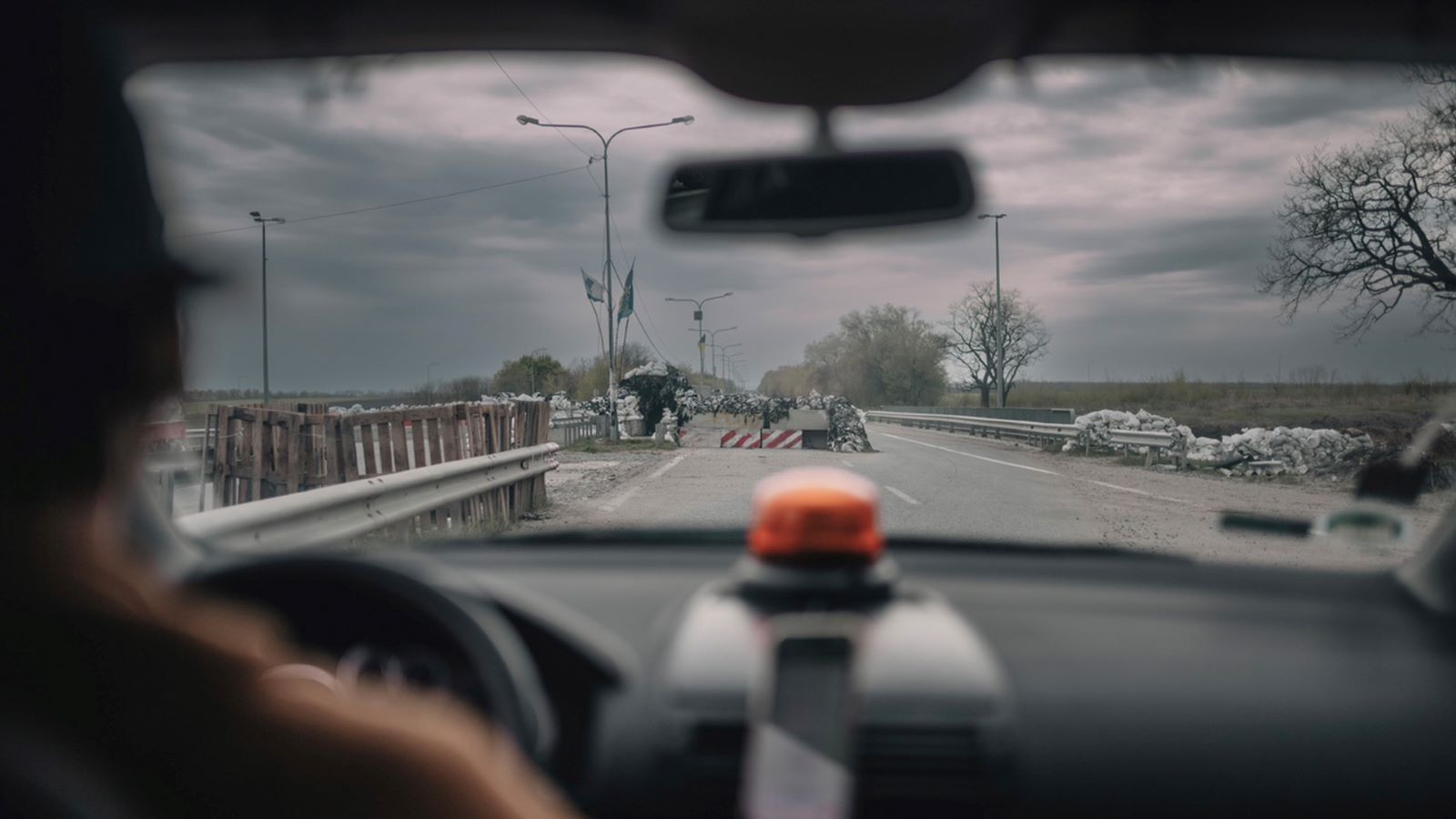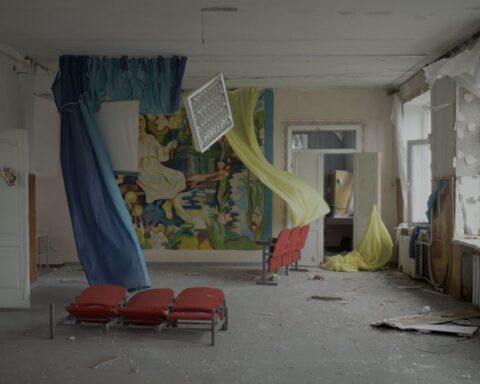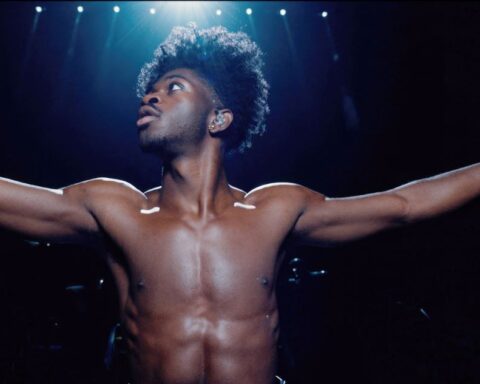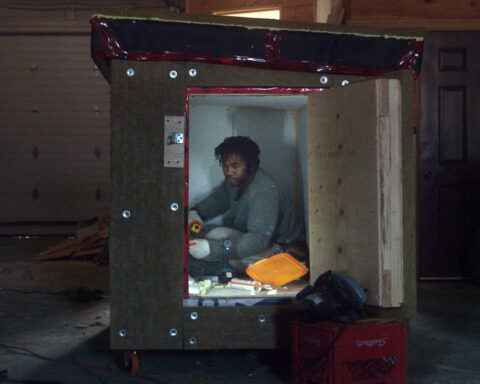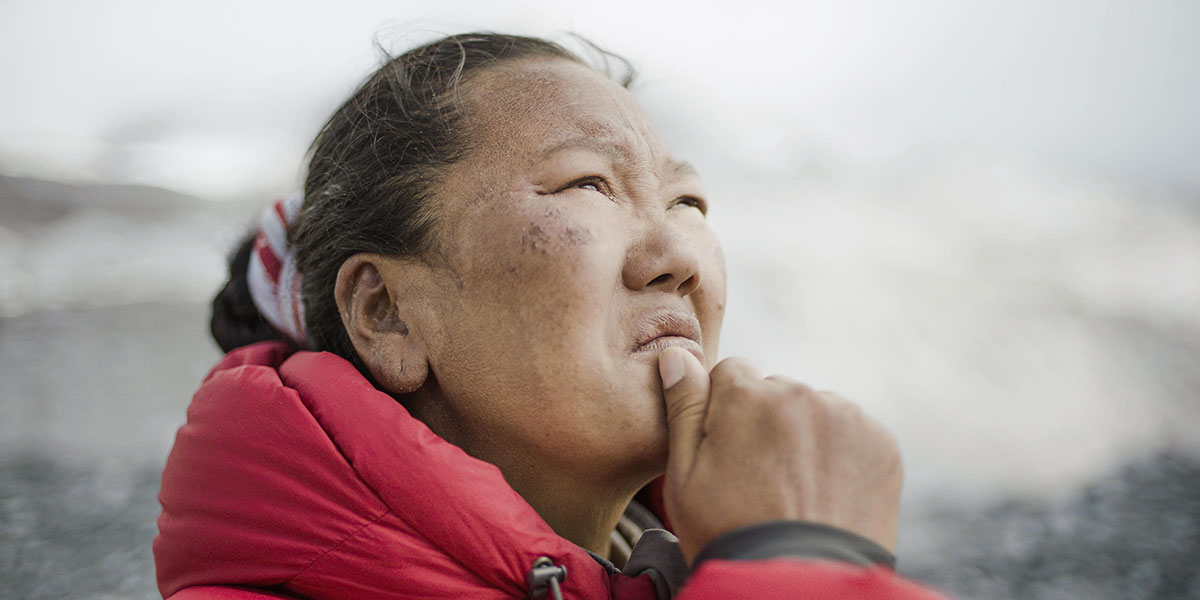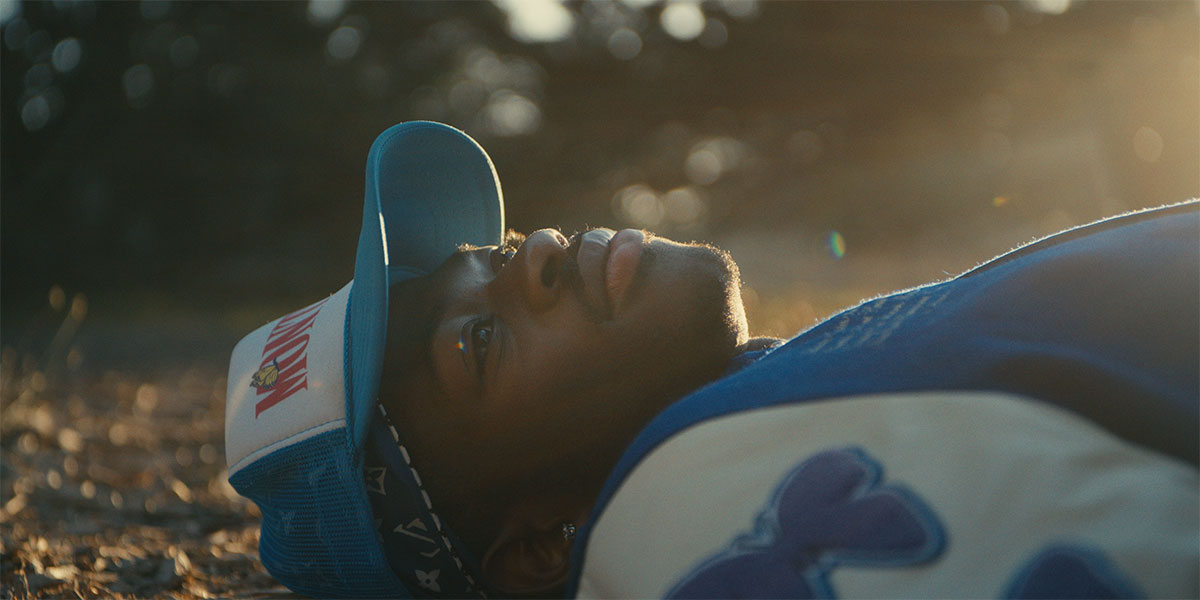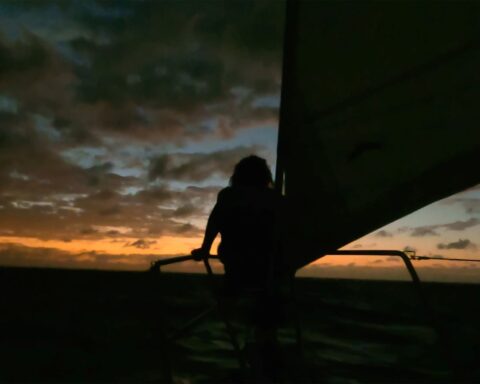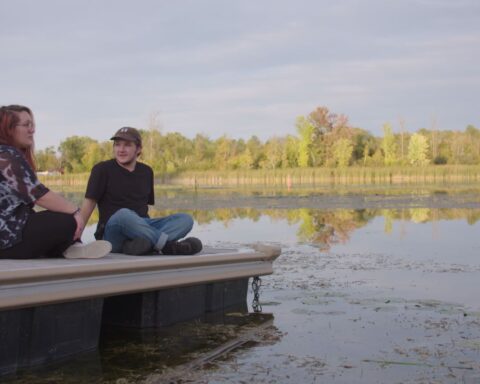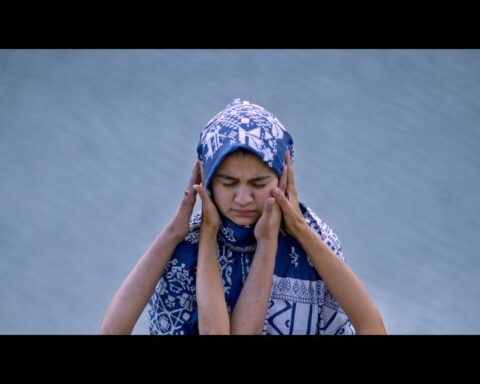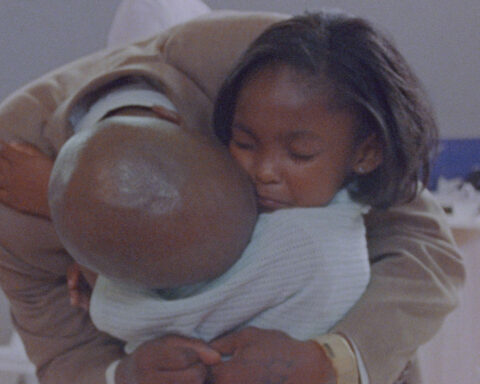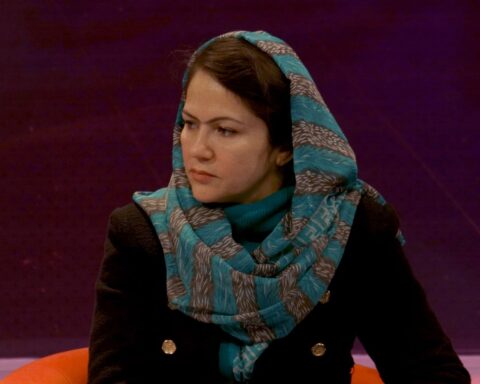In the Rearview
(France/Ukraine/Poland, 82 min.)
Dir. Maciek Hamela
Programme: TIFF Docs (North American Premiere)
Must a documentary filmmaker be a detached observer? Director Maciek Hamela makes a fair argument that one can comfortably record history while being an agent for change. In the Rearview offers a singular portrait of the ongoing invasion of Ukraine. The Polish Hamela voluntarily taxis Ukrainians to safety. As he drives them away from their homes, away from the bombed-out, shell-shocked cities devastated by Putin’s regime, a cameraperson rides shotgun. The camera simply captures the stories of the Ukrainian passengers as they look forward, eyes peeled. Safety awaits, but there’s danger at every turn.
The conceit is simple, but it affords Hamela a unique position. He understands that merely capturing the stories of people seeking safety could amount to extractive exploitative filmmaking. On the other hand, documentary filmmakers generally don’t influence the story arcs their characters take. In the Rearview, however, grants Hamela an intimate perspectives while moving the story forward in the direction that the participants planned. He only changes the route if there’s a checkpoint, a roadblock, or a bombed-out segment of the road ahead that requires him to find an alternative route.
There’s also a clear sense of ethics on display. The camera may seem mounted like a Go-Pro, but a cinematographer holds it from the front seat. Minute, if discernable, handheld jitters accentuate the tension of the drive. Hamela doesn’t poke and prod, either. Rather, when the camera looks towards the rear of the van, the vignettes of In the Rearview resemble any ordinary taxi ride. Passengers look at their phones. They make small talk. They gaze at the countryside.
Taxi Confessions
The difference here, obviously, is that conversations between passengers inevitably evoke the gravity of the situation. They passengers display a clear need to unburden. As with a commuter in a cab stuck in traffic, conversation inevitably arises. People tell Hamela about what’s happening back home, why they’re leaving, and the horrors of war they’ve witnessed. Through these stories, the film avoids trauma porn and instead offers a humanist work of wartime psychology. People worry about conserving phone batteries while fleeing. Cats are calmed in their baskets. Parents distract their children. Teenagers look consumed with ennui. In one notable sequence, Hamela transports an African refugee who narrowly survived the horrors in Mariupol. She lies across the backseat in repose and matter-of-factly tells Hamela about where the bullets hit her body. Her voice never trembles, illustrating a viewpoint desensitized by constant violence.
When the camera gazes away from the passengers and looks out the windows, though, In the Rearview finds chilling snapshots of war. While many documentaries have captured the devastation in Ukraine, few afford such a sense of the scale of damage. The car rides through small towns that seem razed. These aren’t military zones, nor are they sites of any clear political value. They’re just domestic homes—farms, villages—and places where civilians had modest lives.
The viewpoint also captures the violence of the occupation. Roads lead to nowhere, which Hamela discovers while ferrying one carload. The road approaches an overpass with a sizable gap between ends. The filmmaker knows that lives are in his hands, so he doesn’t feel the need for Speed. Instead of jumping the gap, he takes a detour, all the while following well-worn treadmarks in the mud to avoid deviating from a path free of landmines.
In the Driver’s Seat
The situation is dire, but Hamela observes strength in the Ukrainian people. They aren’t passive and they aren’t broken. Rather, there’s great collective spirit in each carload. While there is heartache, there is hope. The film captures this sense especially well when observing the children who along for the ride.
In the Rearview offers an essential portrait of the invasion of Ukraine and the stories of its people. Hamela’s framing of the story rejects their oppressors—any intrusion of the Russians in the frame feels violent. This is a story about the will to survive and the need to move forward. But also a reminder that one can’t be a passive observer when in such immediate contact with such brazen injustice.
In the Rearview screened at TIFF 2023.
Read more about the film in our interview with director Maciek Hamela.
Get more coverage from this year’s festival here.




